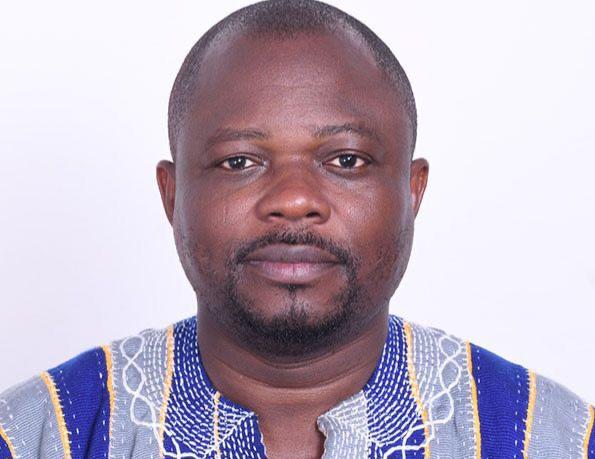By Kestér Kenn KLOMEGÂH
In this interview, Dr. Robert Sogbadji, deputy director in charge of nuclear and alternative energy, explains that Ghana will select by December 2024 a foreign company to build its first nuclear power plants. He says nuclear energy sector has been a hot topic for the government as it plans to operate the first power plants to sustain supply. Sogbadji, in the interview, also discusses a number of important issues relating to the planned nuclear project. Here are the interview excerpts:
How would you characterize energy supply and its impact in the country?
Dr. Robert Sogbadji: Energy supply has been steady in recent years boosting the local economy with SME’s operating sustainably. Ghana’s energy mix is currently Hydro, which is more than 34%, Gas thermal which more than 63% and solar of about 3.5%. Ghana has an electricity access rate of 88.7% with a target to reach 90% by the end of 2024.
The percentage of gas thermal in the energy mix largely influences the cost electricity to the end users. Ghana electricity cost is one of the highest in the west African region, however, Ghana supplies electricity to the it’s neighboring countries such as Togo, Benin and Burkina Faso. This is due to the good reliability of Ghana power transmission grid. Ghana is looking forward to further diversify its energy mix with nuclear power and modern renewables such as wind, biofuel and wave energy.
Explain reasons why energy ‘mix’ for instance could be the practical solution?
RS: In accordance the Ghana Energy Transition Framework, Ghana seeks to provide energy security and address energy poverty as well as reduce the cost of electricity by further diversifying the energy mix with Gas thermal, Hydro power, Nuclear Power, solar PV, wind and other modern renewables. Since Ghana has exhausted all its large hydro potentials, Ghana seeks to Nuclear and Gas thermal power as the base-load to support the intermittent renewables.
But why nuclear energy is still not undertaken seriously by the government?
RS: Ghana started its nuclear energy in the 1960s with the Soviet Union constructing the Ghana Atomic Energy Commission to train human resource capacity for the Ghana nuclear power programme. This could not materialized due to a coup d’etat in 1966. The nuclear programme was rejuvenated in 2008 after a series of perineal power crises which plagued the country every four years. The Ghana Nuclear Power Programme Organisation was established in 2012 to oversee the preparation of the roadmap and implement activities for the inclusion of nuclear energy into the energy mix. The nuclear regulatory authority of Ghana was also established in 2016 to regulate the activities leading to the safe introduction of nuclear power into the generation mix. The Owner-Operator organization, Nuclear Power Ghana ltd. has also been established to build capacity to operate the first nuclear power plant in Ghana.
Currently, Ghana has identified two sites to accommodate its first nuclear power plant and is ready to identify a vendor country and technology by the end of 2024. Russia, China, France, United States of America and Korea are the leading contenders of the vendor identification. Ghana is currently in Phase 2 of 3 of the nuclear journey in accordance to the IAEA milestone. The Government of Ghana nuclear power programme is guided by the IAEA 19 infrastructure issues which needs to be addressed by a new-comer country. So I will say Ghana is working steadily with its vendor partners with considerations on favourable financial terms and technology.
ls the obstacle with finance? Are Japan, United States and China ready to tackle the nuclear construction jointly?
RS: Finance is not an obstacle but with nuclear power project worldwide, finance has always been a challenge. Ghana has not sourced the option of a joint project between Japan, United States and China. Ghana has a cooperation with USA and Japan under the FIRST programme to build human resource capacity in the area of SMR design and operation.
Who takes the final decision here – parliament or cabinet or the president? What are your final words, as an expert, that the country is ready for nuclear power especially in terms of nuclear safety?
RS: Cabinet and the President will decide the vendor country based on advice from the Ministry of Energy. Due to the size of the project funding, the project implementation also has to go to Parliament for approval as well.
Since the Ghana nuclear power programme is being implemented with guidance from the IAEA. Nuclear Safety and security are key and part of assessment in every stage of the programme, hence the early establishment of the Nuclear Regulatory Authority of Ghana at the Phase 1 stage of the programme, even though IAEA recommends its established in Phase 2. This shows Ghana’s commitment to address issues of safety and security in the country.
And what’s the position of IAEA?
RS: The IAEA continues to support the Ghana Nuclear Power Programme by continuously providing assistance in terms of expert review missions and guiding us to develop our guidelines and policies.










